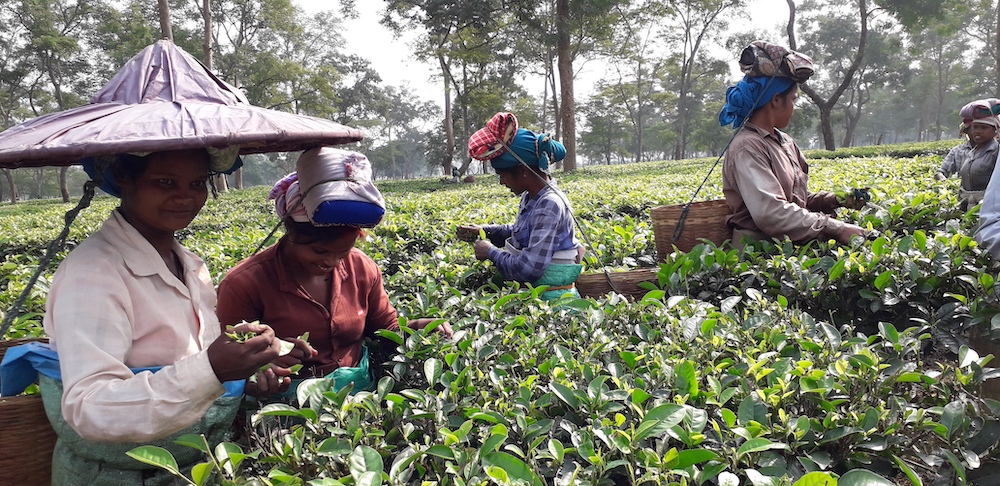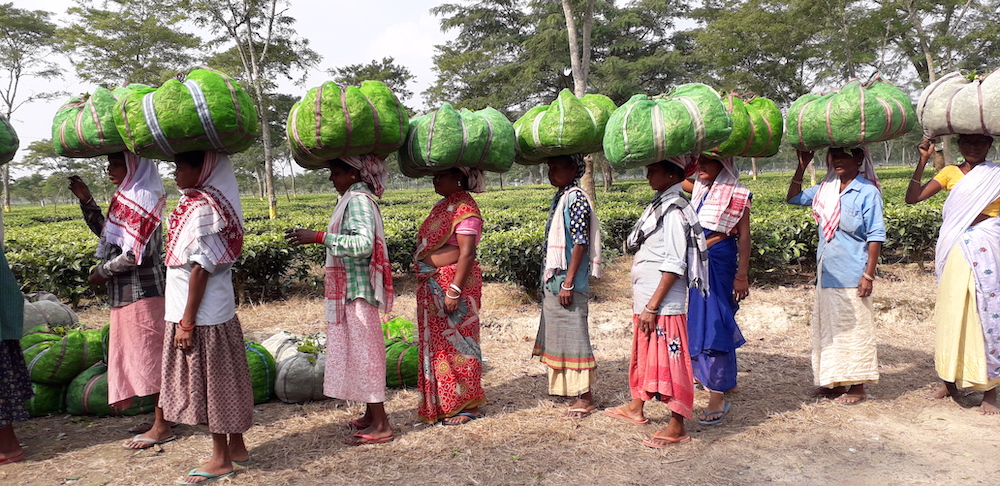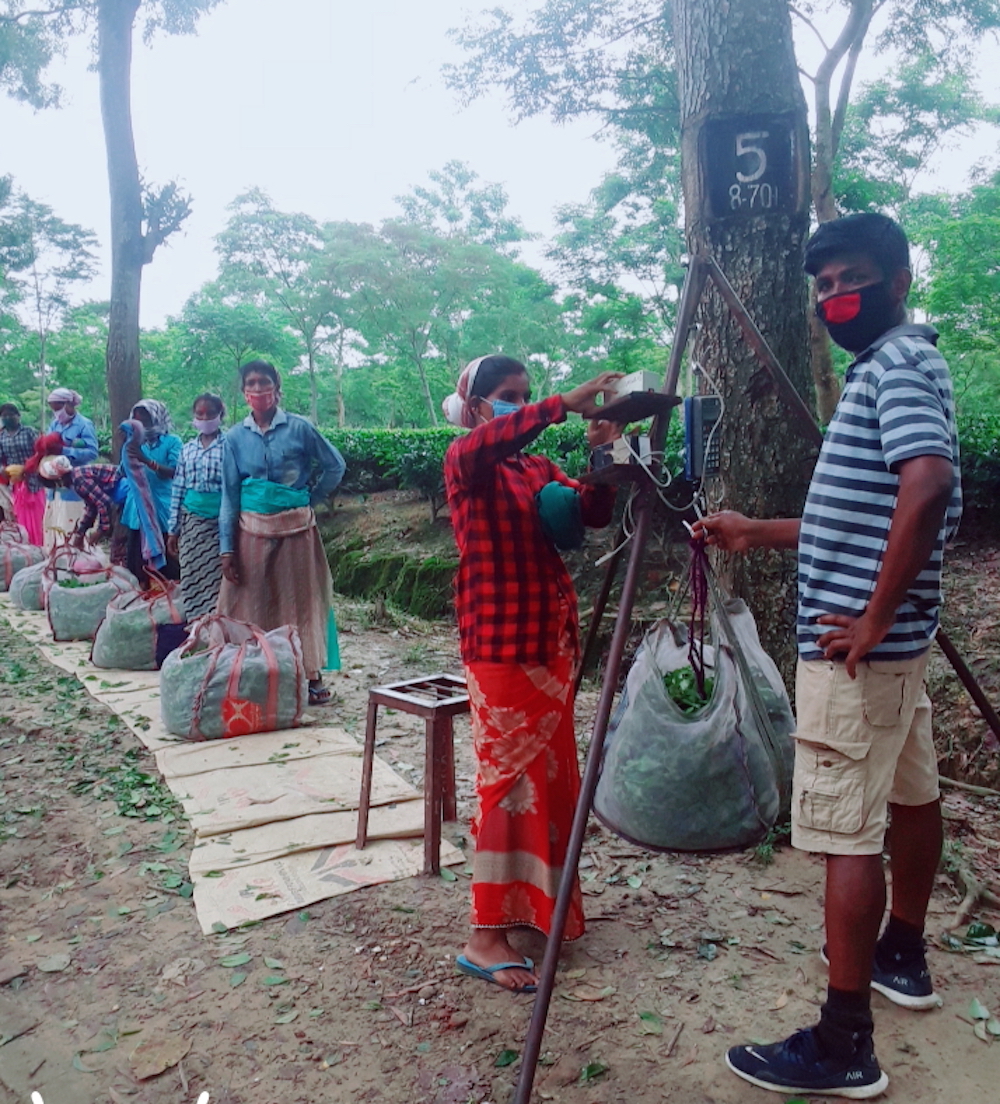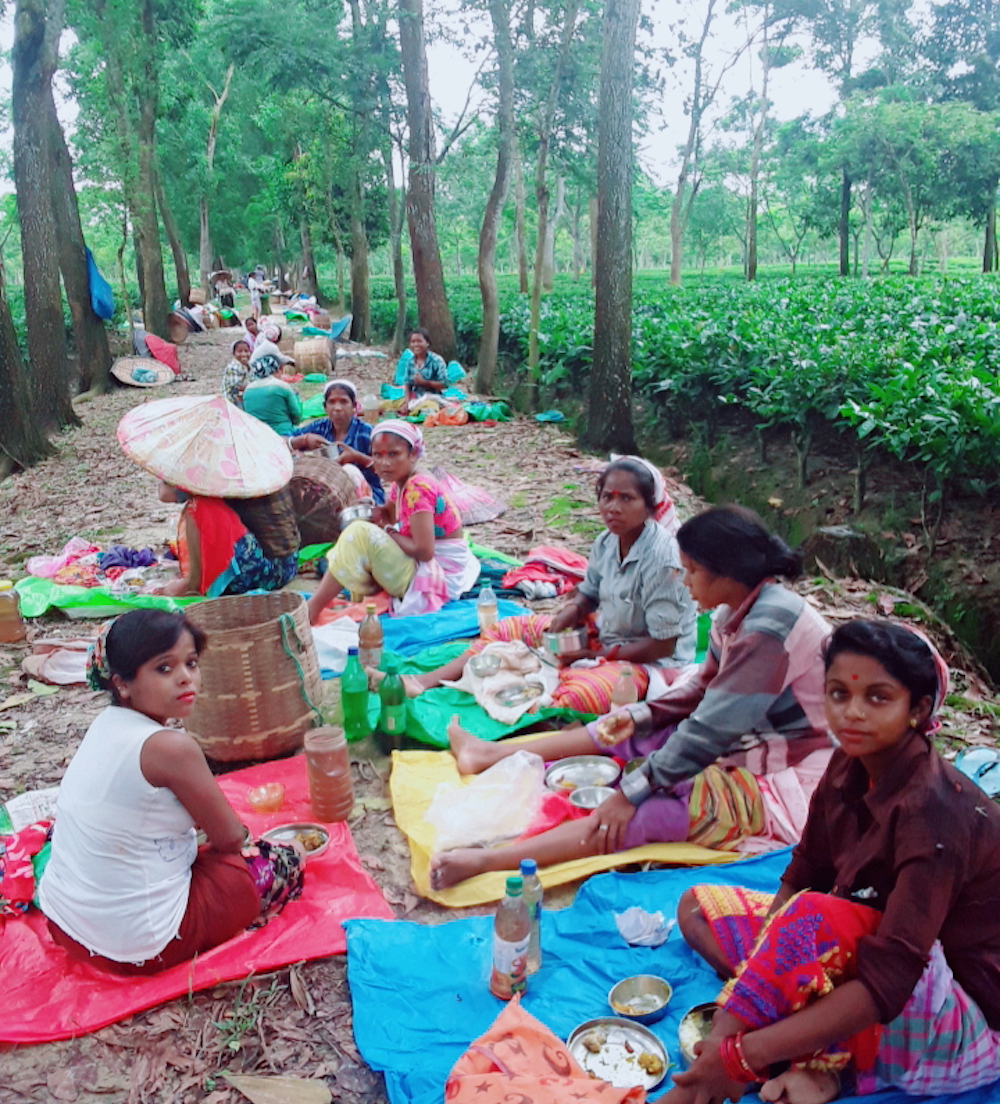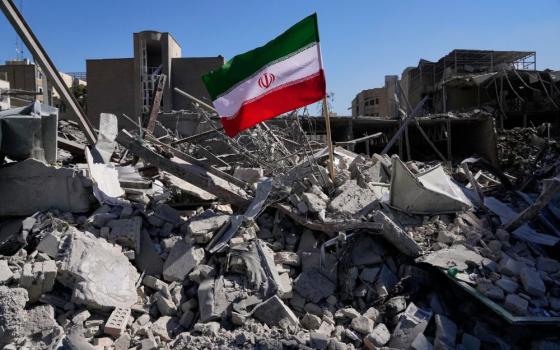Women in northeast India march to celebrate International Women's Day. The Women's Development Centre in Assam began in 1999 to empower women leaders from the remote villages of northeast India, motivating them to improve their situation and to solve their problems. (Courtesy of Betsy Devasia)
Assam, a state in northeastern India, is known for its wildlife, archeological sites and tea gardens. But another resource here is the Women's Development Centre (WDC) — the social work wing of the Sisters of the Cross of Chavanod — which, according to our records, has reached out to 4,870 families and about 24,250 persons in this state.
The inspiration of Archbishop Emeritus Thomas Menamparampil of Guwahati, the Women's Development Centre began in 1999 to empower women leaders from the remote villages of northeast India, motivating them to improve their situation and to solve their problems. More than 100 women leaders from all over northeast India have learned how to form self-help groups and how to tap government resources for their sustainability. They became the catalyst for social change and development in the villages.
We have helped 525 tribal girls who are school dropouts complete their secondary education, and we have trained 1,200 young girls and women through our vocational training center — those who missed a formal education are given a second chance to learn and earn their livelihood, lead a dignified life, and contribute to the development of society. More than 7,000 women received their training here as traditional handloom artisans and have been affiliated with a bank in Assam.
Advertisement
At the outset of the COVID-19 emergency, the development center's first initiative was to make masks, and within a week, we distributed around 600 masks in our neighborhood and other places where we could reach. We called together our neighbors of goodwill and explained to them the difficulties of daily laborers, domestic workers and others.
One of them said, "When we are here, our people should not go hungry." There was a feeling of solidarity, and all contributed generously either in cash or with in-kind donations. As the gifts kept pouring in, they sought necessary permission from the district administration for the distribution of whatever they had collected — food provisions, groceries, sanitizers and so on.
We were able to reach out to 850 families living in the surrounding villages.
As we continued with our survey, we discovered that some of the widows were neglected in the first distribution. Around 80 of them came to us in tears, and we found dry food and masks for them to take to their villages.
The tea garden is one of the major areas where we serve. Assam has large areas of tea gardens with thousands of people working as laborers. Even before the pandemic, we helped 5,000 tea garden women laborers, and 15 tea garden villages. Some of them are permanent workers with identity cards, but there are also a large number of temporary laborers with no ID or ration card.
The tea garden managers and the government help only the permanent workers who have their ID. What about the temporary workers who have no ID or ration card? Realizing this great need, we approached another organization, the ARISE Foundation to help the temporary workers.
We supplied dry food for 550 of these daily wage earners. Though there was a need for masks and sanitizers, we could not provide them immediately as these materials were not available.
Misereor, a Germany-based funding agency, also came to our help. They stood by us and provided the needed support to provide 1,200 tea garden workers with food and sanitary items.
I appealed to our sisters in different communities across Assam, and they responded quickly. They too joined us in this humanitarian work by distributing dry food to 650 widows and the most vulnerable people in those areas. They had to walk for hours to reach the administrative office to get the required permission. But they did it joyfully even though they had to take a lot of risks.
Persons with disability were another group to whom we reached out. Through our efforts 304 persons with disability received 6,000 rupees each (about $81) from the state Social Work Department.
Nimisius, one of the officers of the department, took the initiative to get this amount for deserving people in this difficult time. Besides this, we helped 50 most deserving persons with disability with rice, cooking oil, pulses and soap.
While our relief work was in progress for COVID-19, another natural disaster caused by torrential rain and floods created great havoc for one and all: a heavy storm blew the tin roofs from many people's houses. We helped to repair three of our very poor disabled persons' houses, spending 40,000 rupees.
The district collector was happy to give us permits for the needed relief work, but getting the paper signed was a risk and a great challenge as we had no vehicle to reach his office. We procured the documents with the help of others, and proceeded with our relief work.
In Jorhat district, our target was to help the poor widows, school children from ages 5 to 15, and a few most vulnerable old and physically challenged persons. Two of our staff walked in the rain for the whole day, unable to get anything to eat or drink, since the shops were closed because of the lockdown situation. By 6 p.m., they were glad to get back home to distribute the materials to those hungry people.
We were also able to help 430 quarantined people with dry food, and this gave much relief for the district administration.
Caritas India, the national social service wing of the Conference of the Catholic Bishops of India, came with timely help to the Lakhimpur and Dhemaji districts, where we work with disaster risk reduction projects. We supported 1,068 poor farmers and most vulnerable persons with dry food.
Most of these people do not have a government ration card, which serves as an identity card for government support or subsidies, or other public help programs.
As a church-based humanitarian agency, we at the Women's Development Centre also provided food and accommodations for eight construction workers and seven girl students stranded by the lockdown and trying to get to Manipur, a state bordering Myanmar.
When I look back, it seems likely that in this pandemic period more people could have died due to hunger and anxiety than COVID-19 itself. I am humbled by God's grace in my life and enriched by people's compassion, love and support. Even though I was not able to get out of this office, still we could reach out to 4,870 people.
This was possible due to the support of generous funding agencies, benefactors and local people of goodwill, especially the support of Sister Annie, our provincial, my sisters in the Women's Development Centre, and others in different communities and — most importantly — our staff in the field.

